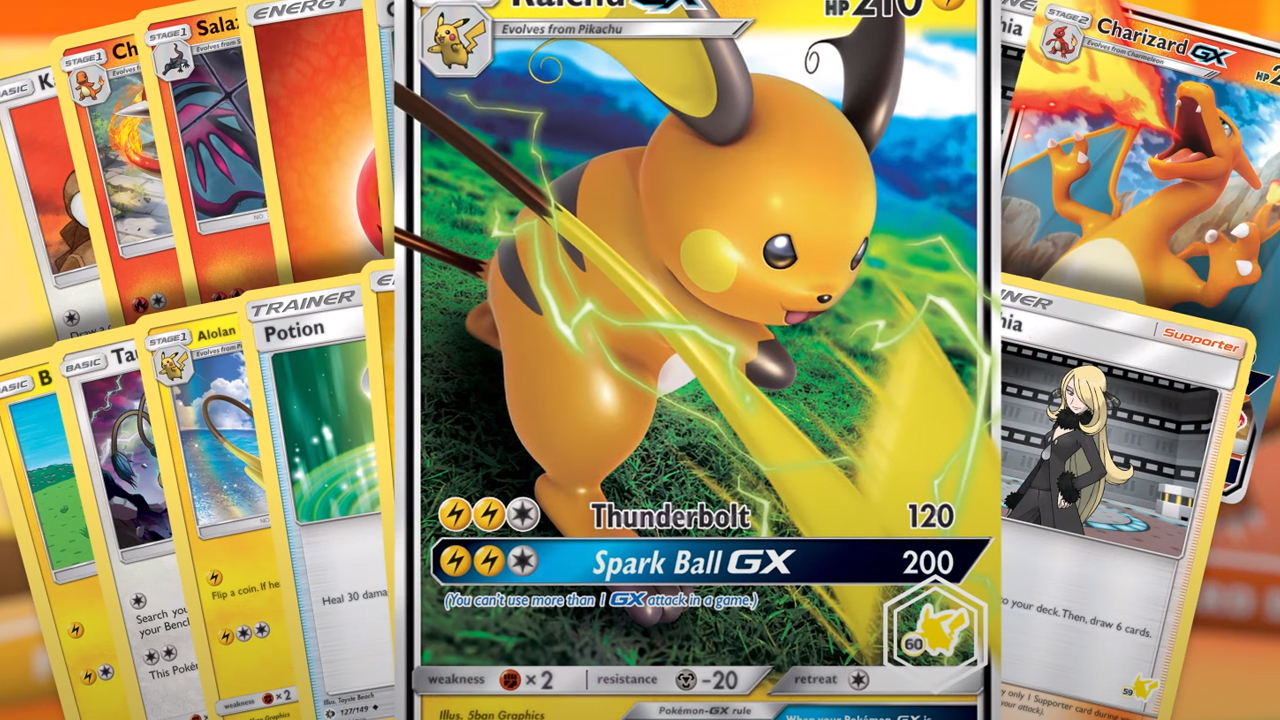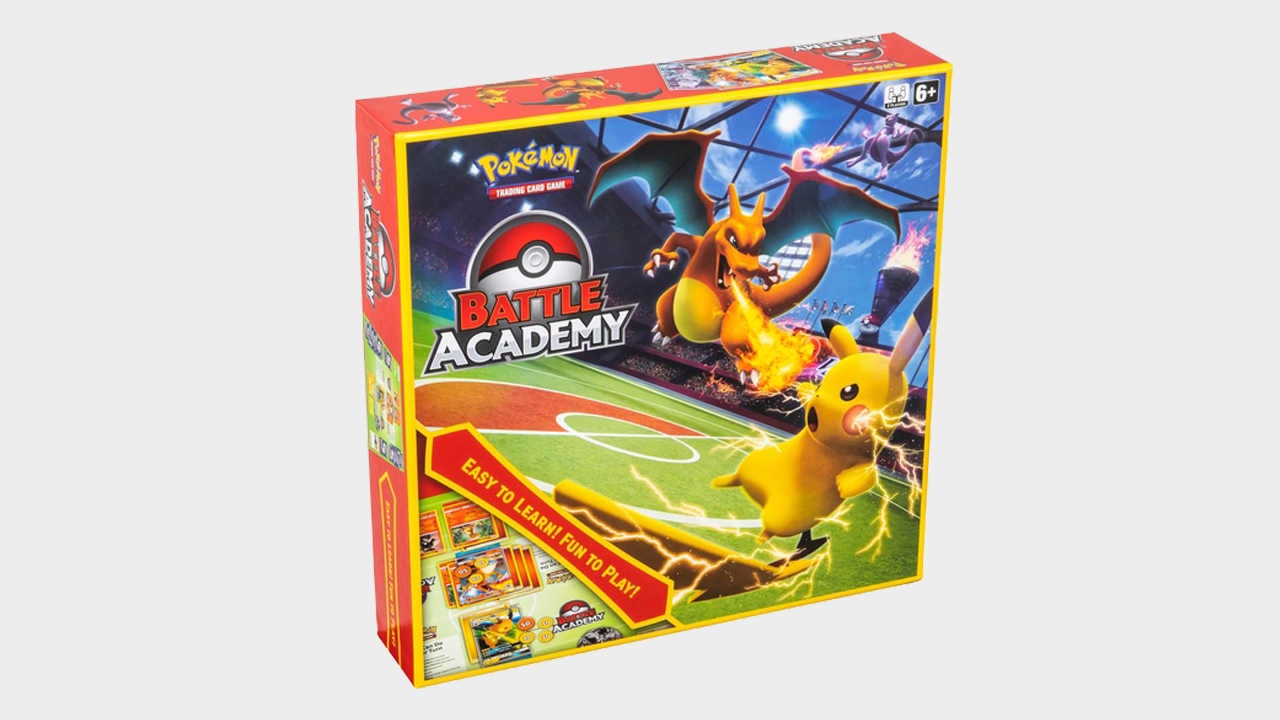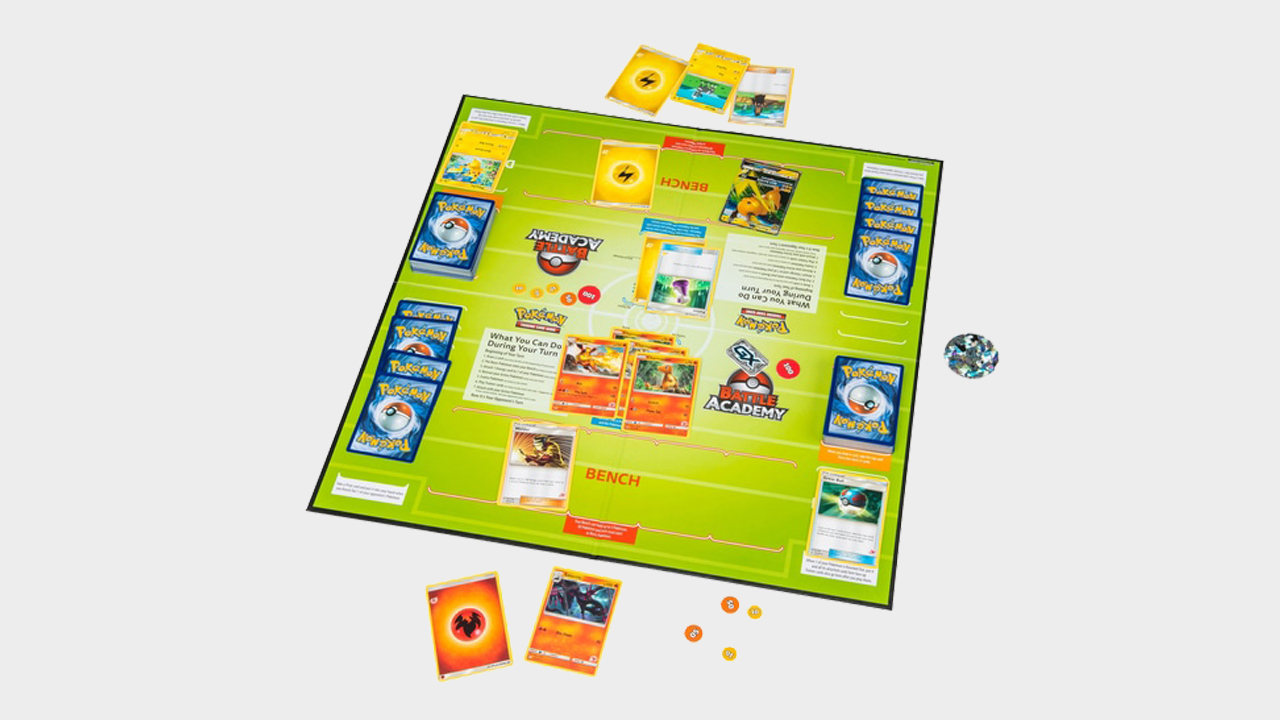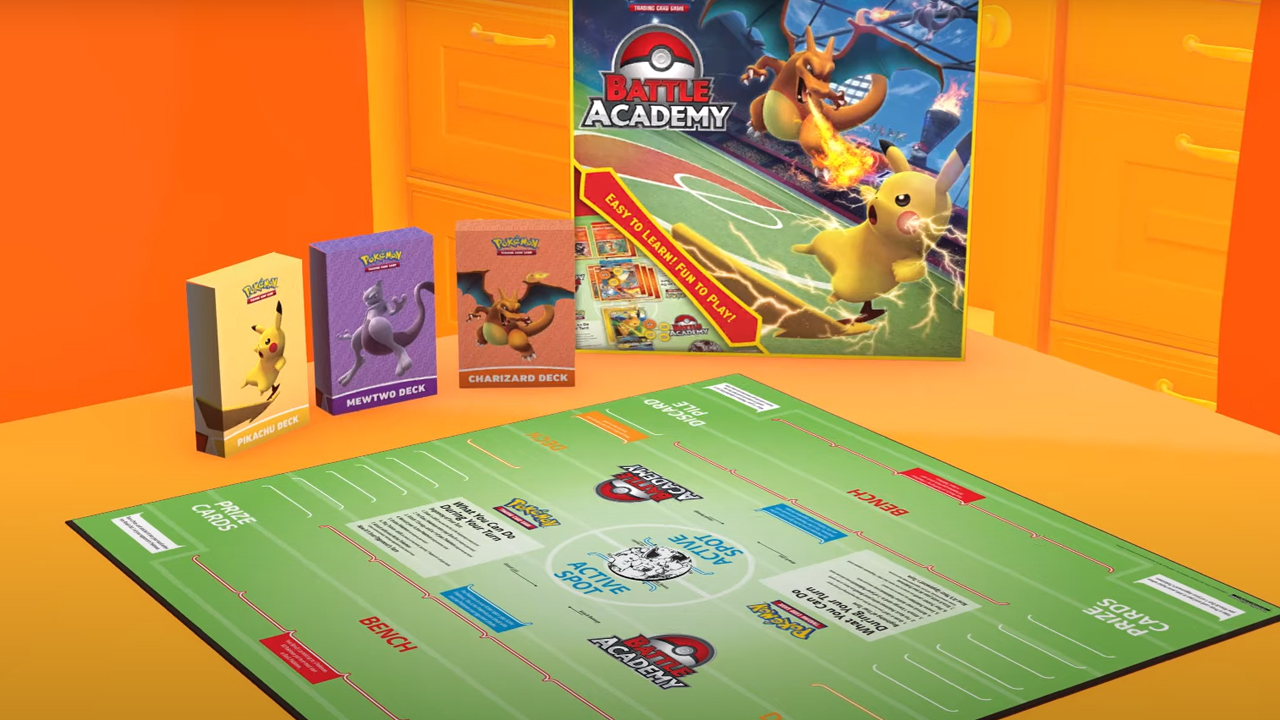GamesRadar+ Verdict
The perfect introduction to the Trading Card game, and a great experience in its own right.
Pros
- +
Accessible
- +
Steady drip-feed of rules
- +
Easy to understand
- +
Compatible with the full Trading Card Game
Cons
- -
Shuffled decks can lead to unbalanced matches
- -
The board is a bit dull
Why you can trust GamesRadar+
Open the Pokemon Battle Academy board game and you'll be whisked back to childhood. Designed as an entry-point to the Pokemon Trading Card Game, it's crammed with nostalgia for a hobby that's been going strong since 1996. However, I don't know if it's ever been this accessible.
That's because Pokemon Battle Academy serves as the perfect introduction to this game. It's easy to follow, provides everything you need to get started, and isn't patronizing in the slightest. As a result, it's the ideal way of easing yourself in no matter whether you're a lapsed fan or have never played before.

Players: 2
Difficulty: Easy
Time to set up: 2 minutes
Time to play: 20 - 60 minutes
Age: 6+
Training wheels
Crack open the box and you'll find an annotated board with rules for moment-to-moment gameplay, tokens to track damage, a holographic coin for determining who goes first, and three possible decks to choose from - Fire, Electric, or Psychic. In a surprisingly generous twist, this is all that's required to play the card game in tournaments or at home; everything from Pokemon Battle Academy is interchangeable with the Pokemon TCG at large, and vice versa. That means you can take your Pikachu-themed deck and sub in new cards from other sets or blister packs. The world is your (Cl)oyster.
You don't need to worry about any of that to begin with, though. Everyone starts with the Fire and Electric decks, and these go alongside a guided game that walks you through the basics. Although it might seem overwrought at first in its simplicity, this on-rails match guarantees that no-one will be turned off by in-depth mechanics or pages of rules. It's blissfully straightforward, and once I was done I felt ready to take on a real game despite not having played the TCG for decades (yes, I know, for shame - I'm aware that the Pokemon TCG is among the best card games out there).

But let's back up for a second. If you're new to this, here's how it works. Each player starts with a hand of cards drawn from their deck, and that'll include a mixture of Energy, Pokemon, evolutions, items, and supporters. You begin by placing a basic-tier monster in your active slot - this will be the one attacking or getting attacked - and others in reserve on the Bench. You then attach one Energy card to your Pokemon per turn, and that powers its moves. Most Pokemon have a couple of attacks to choose from, but these require different amounts and kinds of Energy that you collect throughout the game. As such, you've got to carefully time when and where to put down Energy.
Once you've chosen an attack, you use it against your foe's active Pokemon and... well, they either get knocked out or weather the storm. Your opponent can then respond. The winner is the first person to knock out a certain number of their opponent's Pokemon. For the guided game, it's just four. That makes for a snappy, quick match.
The best there ever was
Don't think these training wheels result in a dull game. Your turns are given a welcome complication by healing potions, attack bonuses, and evolutions that can completely upend the balance of power. The ability to retreat is also a crucial layer of strategy to factor in; it lets you withdraw a wounded Pokemon and deny the other player points, but it also requires you to give up a precious Energy card.
It's a testament to the game's rules that they're so accessible, even with those extra mechanics thrown in. That makes Pokemon Battle Academy perfect as a board game for kids, especially because the guided session is so easy to follow. In fact, you can be playing full games in less than half an hour.
Speaking of which, you're gently introduced to the game proper once you've cleared that guided session. This allows you to use the Psychic pack and shuffled cards to randomize your deck, offering more of a challenge and the need to think on your feet. The number of Pokemon you have to defeat to claim victory is increased as well.
That's Battle Academy all over; it drip-feeds information and rules exactly when you're ready to hear them.

Mostly, that is. The Physic rulebook that goes along with the deck isn't as easy to parse as the others; it's more of a glossary featuring a list of full rules than a logical, step-by-step guide. This isn't a hanging offence, of course, but it's somewhat jarring compared to how user-friendly the rest of the set is. It's the same story with references to concepts not present in the Battle Academy. Despite being prep for the TCG at large, it still feels a bit too "want this cool thing? Spend more money" for my taste.
That frustration is mirrored by a reliance on chance. It's not a common occurrence, but your prospects can be dashed straight away depending on which cards you wind up with first. In fact, I've seen a few matches end quickly because one player found a powerful Pokemon and proceeded to wipe out their opponent before they could build up enough Energy to respond. This definitely wasn't the norm, but it's something to keep in mind nonetheless.
It's a small complaint in the grand scheme of things though, as is my other very mild criticism that the board could be slightly prettier. When set alongside the vast array of pros (not to mention the adorable and frequently beautiful card artwork), these cons melt away in short order.
That's a sign of how good Pokemon Battle Academy is at its job: I can't think of many negative things to say at all. In addition, I'm now keen to rush out and get another set of cards to create my own deck. I imagine this is exactly what the game is designed to do, so bravo, Pokemon - you win this round. I suppose you could even say it was super effective.

I've been writing about games in one form or another since 2012, and now manage GamesRadar+'s tabletop gaming and toy coverage. You'll find my grubby paws on everything from board game reviews to the latest Lego news.



